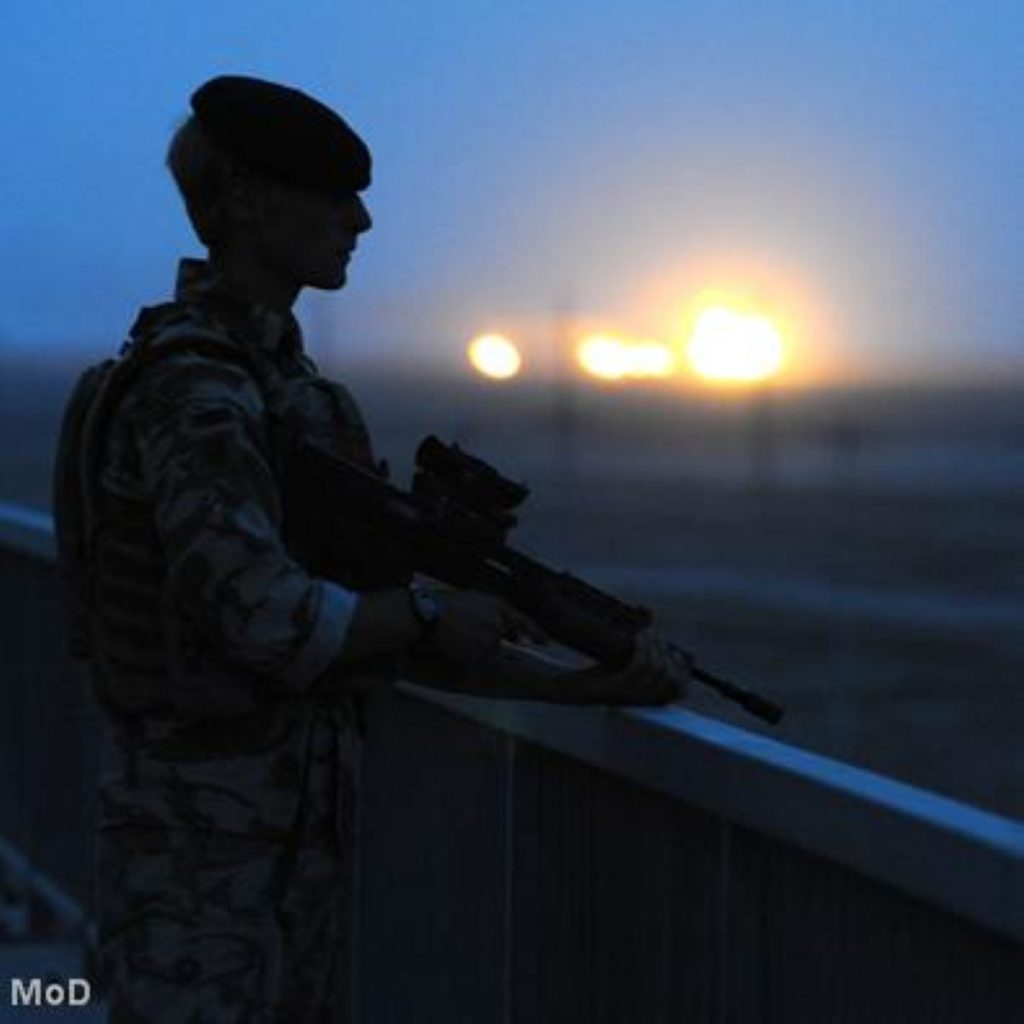Brown hints at Iraq inquiry U-turn
By Alex Stevenson
Gordon Brown may accept large parts of the Iraq war inquiry being held in public rather than private, No 10 has conceded.
Downing Street sought to downplay the significance of whether the inquiry was being held in private or public this morning as criticisms of the prime minister’s decision to hold the inquiry in private continued to mount.
“The issue for us has always been the inquiry is structured in a way that gets to the truth. and that people can speak honestly and candidly [about the decisions that were taken],” the prime minister’s spokesman said.


He added that whether the inquiry was public or not “had never been an issue of great theology” to the government and that the primary objective had always been “to get to the truth”.
Mr Brown’s letter to Sir John Chilcot, the man appointed to chair the inquiry, presses the importance of those appearing before the inquiry being able to do so “with the greatest possible candour and openness”.
But it concedes this must take place “while maintaining full public confidence in the integrity of the process and without in any way damaging national security”.
No 10 is reluctant to specify who has the final decision on which elements of the inquiry should be held in public – Mr Brown or Sir John.
“Sir John will have to consider what is the most appropriate form of structuring evidence sessions,” the Downing Street spokesman added.
Sir John will meet with David Cameron and Nick Clegg and the chairs of the relevant select committees before submitting recommendations on how the inquiry should proceed.
This afternoon, the public administration select committee joined calls for the inquiry to be made public.
“This is an opportunity to restore public confidence, and to separate fact from fiction, but as things stand there is a real danger the opportunity will be missed,” said committee chair Tony Wright.
“What we need is an inquiry that is able to get at the truth and ensure proper accountability.”
Opponents of the prime minister have suggested he is backing down in the face of a wave of criticism.
On Monday Mr Brown told the Commons: “Taking into account national security considerations as the Franks Inquiry did – for example, what might damage or reduce our military capability in the future – evidence will be heard in private.
“In this way also evidence given by serving and former ministers, military officers and officials will, I believe, be as full and candid as possible.”
Today, Liberal Democrat leader Nick Clegg accusd the prime minister of failing to live up to his claims of open government.
“If Gordon Brown was ever serious about a new kind of open politics, he has failed at the first test,” he said.
“Handing the decision on the conduct of the Iraq inquiry to Lord Chilcot is just another example of the prime minister passing the buck.
“This inquiry must be held fully in public, except where the revelation of particular pieces of evidence can be proven – through independent scrutiny – to pose a threat to national security. Political and personal embarrassment is not a good enough reason to close the door on public scrutiny.”
Later today Lord Butler, who chaired a previous investigation into the conflict, is expected to indicate his preference for a public inquiry in the House of Lords.
“Lord Butler’s comments put further pressure on Gordon Brown to turn this process from a whitewash into a genuine attempt at fact-finding and reconciliation,” Mr Clegg continued.
It follows Ed Balls’ comment yesterday on ITV1’s This Morning programme that he would prefer it to be “as open a process as possible”.
Mr Brown faces a vote on the issue in the Commons next week as the Conservatives use their opposition day to pile pressure on the government.
Labour backbenchers unhappy with the decision had threatened to rebel against him, leaving him with a lose-lose situation: either concede or risk damaging revelations in the run-up to the general election.
Downing Street may be hoping today’s fudge means that dilemma has been avoided. Sir John is unlikely to submit his recommendations before next week’s vote.

